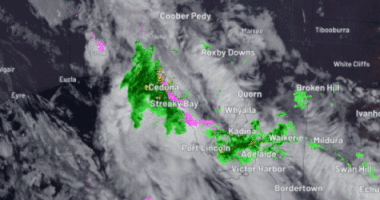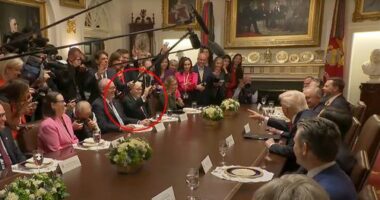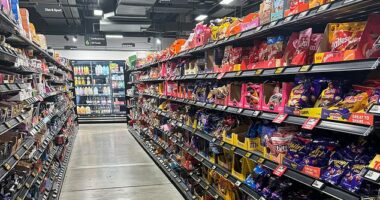Share this @internewscast.com

Here’s what you need to know.
Australia’s relationship with China
China is Australia’s largest two-way trading partner, and buys almost a third of Australia’s exports. Trade between the two countries was worth almost $312 billion in 2024, according to the Department of Foreign Affairs and Trade.
He does not believe China is seeking to take advantage of rocky relationships between the US and its allies, including Australia.
While Chalmers did not directly address the issue of the US tariffs, he said stabilising Australia’s relationship with China was positive for the economy, workers, employers and industries.
Chalmers said the government was “optimistic about the future when it comes to Australia’s place in the global economy”.
‘Political tension’ between Australia and the US
“At the same time, it’s clear that we’re going through a period of political tension and relational tension.”
“I think that the prime minister has been very clear that [in] putting a very public sense of boundary or limit on what we will do and how far we’ll go and the implications for the relationship.”
Could the US change tariffs on Australia?
The government would continue to try to negotiate a total exemption from US tariffs, Albanese said, even though no country in the world had done so.
“It would be wildly optimistic to think that we could make any, I think, improvement on our situation.”














